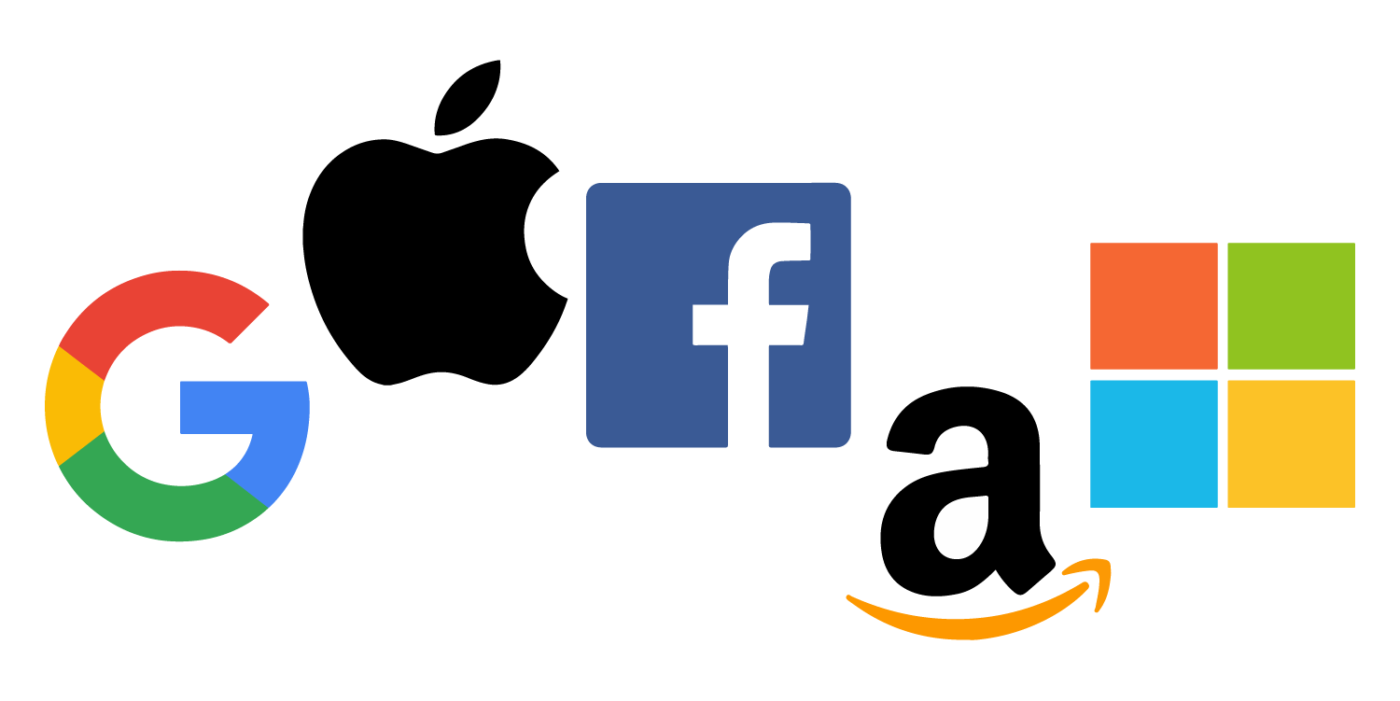The biggest and most influential technology companies – Google, Facebook, Apple, and Amazon – were once the darlings of Wall Street, the media, and consumers. But the tone has decisively shifted in recent months. Most news reporting focuses on data impropriety, privacy issues, and, increasingly, the pure size and scope of the organizations that dominate the space. Politicians, businesses, and academics are asking an important question: are these companies so big they are anticompetitive?
These companies and the tech sector at large are finding themselves in the crosshairs of antitrust investigators. But, befitting an industry with immense power and resources at its disposal, there are groups pushing back strongly against these antitrust efforts. The arguments for and against legislative action reveal a wide spectrum of beliefs – and reinforce the complexity of the topic.

Taking Sides in the Antitrust Movement
Scrutiny around large technology companies has become a rare source of bipartisan agreement. In one prominent example from 2017, Josh Hawley – currently a Republican Senator but previously Attorney General for the state of Missouri – began an investigation into Google’s business practices. It’s a movement playing out in states around the country. In two more recent examples, the Justice Department and FTC announced they will split oversight of Google and Amazon, while the Supreme Court recently gave the go-ahead to a long-simmering antitrust suit against Apple.
But the antitrust movement extends beyond politics. Competitors to the world’s largest tech companies are increasingly voicing concerns, complaining that it is easier than ever for large companies to stifle competition. As the New York Times reports, the antitrust debate centers around the traditional standard for enforcement, built around the idea of consumer harm and how a company’s business practices affect price movement. How these principles apply in the digital age and to new and shifting technologies is an evolving question.
Further complicating matters is that even parties in agreement about an overall direction disagree about how to reach their goals. Some antitrust proponents “argue that existing laws are adequate, and the government just needs to enforce them correctly,” while others “say Congress should modify existing laws to institute a new test for monopoly cases, like factoring-in the effect that a company’s dominance has on workers or competitors.” Critics of antitrust action “say many problems with large Silicon Valley companies [like privacy and data issues] have nothing to do with competition” and could be corrected by “new data regulations,” as others argue that existing proposals for antitrust action are emotion-driven or “moving too fast” to be applied sensibly.
The (Slow) Pace of Change
Status quo supporters take heart in the drawn-out nature of antitrust law – and the fact that the cases are difficult to make and prove. Perhaps the most famous technology-related antitrust case, United States v. Microsoft Corp., was ultimately won by the government. But while some argue it laid the groundwork for the current climate of Big Tech dominance, others find it difficult to believe that any modern case could be as impactful. In a CNBC report, Doug Melamed, a law professor at Stanford University, suggests it is unlikely that current allegations “might fundamentally change the business models of the platforms. [A company’s] ability to migrate market power into adjacent markets – verticals for Google or product sales for Amazon – might be inhibited by antitrust remedies, but those changes do not affect the core business models.”
Unsurprisingly, well-heeled tech companies are using their considerable resources to push back against critics, while rival companies contribute to opposing causes. Google, Amazon, and Facebook are among the contributors to the research nonprofit (and supporters of existing antitrust law) International Center for Law & Economics, says the New York Times. Senator Mike Lee (R, Utah), who “has led the defense of existing antitrust law” in the Senate, “has been accused of letting money [from Google] influence his views on the subject” by the nonprofit Google Transparency Project – itself a recipient of donations from Oracle, a primary competitor to Google).
Teasing apart the morass of money and influence driving both sides of the argument is almost as time-consuming as trying an antitrust case in court. Certainty is scarce, but it is undeniable that the conversation around Big Tech is changing. Will structural and operational changes follow? The legal application of antitrust law to technology companies is being (slowly) defined in real-time by courtrooms and lawmakers.







